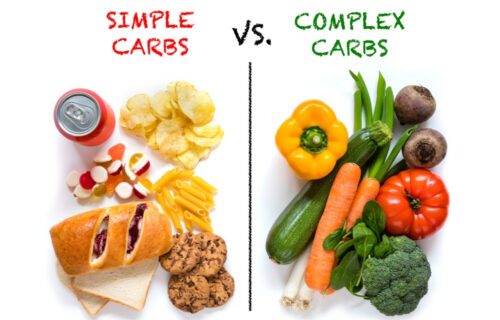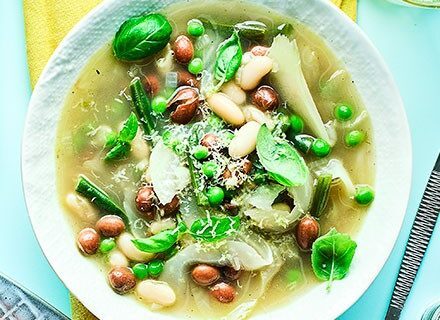
Bone Broth – Is it all hype?
How Bone Broth may be of benefit to your health.
It can detoxify your liver, lubricate your stiff joints, patch up the holes in your gut, and erase your wrinkles, to name just a few of its supposed party tricks.
There is a lot of hype about bone broth and its benefits in recent years. Bone broth is a staple food in almost every cuisine on the planet with thousands of varieties of soups, stews and sauces that use it as a base. But it’s also been used medicinally too. Mothers and grandmothers all over the world have served up chicken soup in a myriad of forms as a remedy for common ailments.
Jewish Mothers Healing Chicken Soup is a classic example – but are the benefits from the collagen, the gelatin, the garlic or the whole food itself ie the sum of all the components is more than the parts.
Multiple Healing systems like Chinese medicine value it to treat a wide variety of afflictions. A South American proverb goes so far as to say, “Good broth will resurrect the dead.”
What I want to cover here is the claims versus the science. There are so many different ways to do research and it’s hard to make claims about bone broth in general. The nutritional value depends on many variables, including the kind and amount of bones, the length of time it simmers, and the other ingredients.
I won’t promise it will resurrect the dead – but I have seen enough clients gain benefit from regular consumption over a period of time to say it is worth considering. Sometimes trusting the historical use and the anecdotal evidence is enough – especially when the science is not always directly transferable.
It is a trend – but one worth thinking about, but it is NOT a CURE ALL
What is Bone Broth?
Bone broth is simply animal bones and other parts attached to bones (meat, joints, tendons, ligaments, cartilage, etc) that are simmered in water for extended time periods.
Vegetables, herbs and spices are often added for additional flavours. Because stocks are simmered for longer periods, more of the bones and attached parts break down, which creates a thicker, more gelatinous liquid. The purpose of this is to extract as many nutrients as possible. Nutrient extraction is the main goal and the longer you simmer the bones, the more that happens.
What nutrients are in bone broth?
First, let’s understand that the nutrient content of bone broths varies depending on many factors – types of bones used, volume of water used, length of cooking time, the age, diet and health of the animal and any added vegetables and herbs. No two bone broths will ever have the exact same nutritional value!
But assuming some general principles such as a longer cooking time, a variety of bones used (which adds a wider variety of nutrients) and a healthy diet and environment of the animal (pasture-based or wild) most bone broths will contain the following nutrients:
Minerals
Bones are made of about 50% minerals, the majority of which is calcium and phosphorus. It also contains magnesium, sodium, potassium and sulfur as well as trace minerals. It stands to reason that bone broth would be a great source of minerals. Actually, there’s some evidence to suggest otherwise. More about that later.
Collagen
Collagen comes from the Greek word “kolla,” which literally means “glue,” and it’s the substance that in many ways keeps us glued together. It is the main protein in mammals and makes up about 25% – 35% of our body’s total protein content. Collagen forms the strong but pliable connective tissues that stretch + bend – tendons, ligaments, cartilage, joints, and skin. This is why a good nutrient-dense bone broth will contain a lot more than just bones.
Gelatin
You can see evidence of collagen when a long-cooked collagen-rich broth cools in the fridge. It will form gelatin and wobbles a bit like jelly (whose primary ingredient is gelatin). Gelatin is basically cooked collagen and is rich in some key amino acids that are not easy to obtain in our modern diet. Three of them, glycine, proline and glutamine are the most abundant amino acids in bone broth and play some key roles in keeping us healthy.
- Proline plays roles in building healthy collagen including the lining of our arteries and skin. It also helps build healthy cartilage.
- Glycine plays roles in the synthesis of our DNA and RNA, haemoglobin, bile salts, stomach acid secretion, wound healing and reducing inflammation.
- Glutamine plays roles in gut health, immune health, liver health and detoxification, muscle-building and brain health.
All three are known as “conditionally essential” amino acids meaning the body can produce them naturally except for certain conditions such as times of illness or stress in which case we need to consume them from food. However, because so many people are chronically ill and stressed today and because so few consume gelatin-rich foods anymore, some health practitioners believe most people are deficient in them.
Proteoglycans
These are extremely large and complex molecules made of proteins and sugars known as glycosaminoglycans (GAGs). Their primary job is to attract and hold water thereby providing cushioning and lubrication to our cartilage, skin, muscles and bones. Proteoglycans are to our body like oil is to the engine of a car.
Claims and Benefits for Health
As I mentioned above there’s limited research on bone broth as a whole food, but there is quite a bit on the individual nutrients in bone broth.
It is interesting that scientific studies done in labs (frequently done on mice or rats) are often given more credence than hundreds of years of practice and observed benefits. That said, it’s good to reference some proven studies to help weed out the more exaggerated claims.
Unfortunately, some people get carried away and stretch the claims just a little too far.
#1: Gut Health
Of all the claims of bone broth benefits gut health is probably the one that’s most widely experienced and studied. For centuries, traditional folk medicine has prized its ability to help ease gastrointestinal problems. I have found in clinic that the benefits experienced to digestive health by my clients has convinced my sceptical mind.
Is it the gelatin and glutamine?
Although few modern-day doctors recommend bone broth anymore, prior to World War II and the rise of pharmaceuticals, doctors were much more open to using food as medicine.
For example, Dr. Francis Pottenger, in 1937 said, “Gelatin may be used in conjunction with almost any diet that the clinician feels is indicated. Its colloidal properties aid the digestion of any foods which cause the patient to suffer from ‘sour stomach.’”
And there’s quite a bit of modern-day research on the nutrients in bone broth to back this up. For example one study showed that the glycine in gelatin can aid with stomach acid secretion. Another study demonstrated that glycine can also help repair ulcers.
Studies (and here) have also been done on gelatin and glutamine showing how they help support and regenerate the mucosal lining of the intestinal wall, thus aiding in repair of leaky gut.
#2: Immune Health
A study done in 2000 found that chicken soup had a significant ability to inhibit neutrophil migration, meaning a significant ability to reduce inflammation.
Other research has shown proteoglycans can stimulate the production of different types of immune cells (source).
Modern science is confirming what grandmothers have known for ages!
Bone broth has been used as a treatment for the flu, colds, coughs and sinus issues for hundreds of years all around the globe. Chicken soup is often called “Jewish penicillin” because of its use in Jewish cuisine to treat and prevent illness.
Furthermore, we’re only just beginning to understand that there is an intimate relationship between the gut wall and the immune system. About 70% of our immune system is embedded within our gut wall and a compromised gut wall (known as “leaky gut”) can lead to more complex autoimmune issues. The amino acids in collagen and gelatin are an integral part of a healthy gut lining and therefore, healthy immunity.
#3: Joint Health
Osteoarthritis is a degeneration in the cartilage of the joints. Basically, the proteoglycans, the large cushioning molecules responsible for good joint health, are no longer regenerated efficiently leading to pain, inflammation and swelling.
Research is starting to vindicate the many benefits of the nutrients in bone broth for joint health.
It stands to reason that the widespread disappearance of gelatin-rich foods from our modern diets, which contain the very proteoglycans necessary for good joint health, are at the root of the epidemic of osteoarthritis problems in industrialized countries.
#4: Skin Health
It is not just vanity. Improvement in skin health can be vital for some people with chronically dry or cracking skin, especially on hands and feet which can lead to infection. But as an added bonus skin tone is a common side effect. It makes sense because your skin is made of collagen and proteoglycans too, especially the inner layer below the surface.
However, research has been done on hydrolysed collagen supplements and bone broth is not hydrolysed.
#5: Sleep and Mental Health
The studies here are with supplementation again. A 2007 study found that glycine supplementation before bed improved subjective sleep quality and sleep efficacy. Basically this study said there’s a relationship between getting a good night’s sleep and our ability to think clearly. Go figure!
Furthermore, glycine is the major inhibitory neurotransmitter in our central nervous system, meaning it helps to calm us down and stabilize our moods.
#6: Bone Health
It stands to reason that bone broth would be a great source of minerals and therefore a good food for bone health. But research from the past and present suggests otherwise.
A study back in 1934 found low levels of calcium in bone broths (source). Recent research has also found low mineral levels (source).
However, there’s a lot more to the integrity of bones than just minerals. Bone is a living tissue. Inside is a complex matrix of metabolically active connective tissue composed of things like cartilage, nerves, blood cells, marrow, and collagen. Yes, collagen. Collagen keeps bones strong and pliable just as it does other tissues in our body. An over simplistic but perhaps useful analogy is to think of your bones like a lattice-work of bricks. The minerals act as the bricks themselves, and the collagen is the mortar between the bricks that glues and solidifies them together.
While more research is needed to determine the health benefits of bone broth, I trust its wide and varied use around the world as proof of its many health benefits. That’s enough evidence for me.
In summary:
The bottom line is that your experience is all that matters, not what studies say or other people. If you’re suffering from gut issues or any of the issues listed above, it can’t hurt to try consuming bone broth on a regular basis in conjunction with other dietary changes.
I have a recipe here for you.




Pingback: Bone Broth - Recipe for Health Benefits | Sally Pattison
Pingback: Collagen or Bone Broth? | Sally Pattison